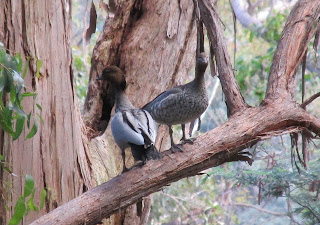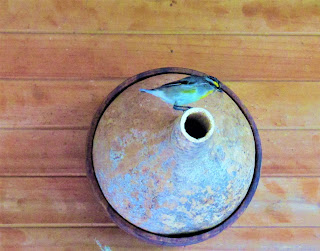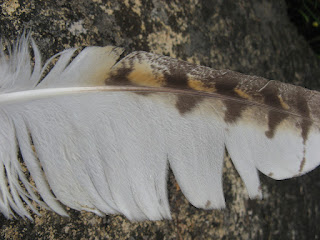Nests
Say something in response.
Yun Men, case 14, Blue Cliff Record
Three perfect days of sun, not hot, not windy. It draws me out to the edges of myself and then evaporates them; skin alive with its touch, step by step each foot kisses the ground and the ground kisses back. Roses open after being stalled in bud for weeks; as I sit working they send a waft of perfume so strong it’s like a tap on the shoulder.
Then as forecast, from the south, rain mixed with snow falls heavily all night, straight down, chilly twin of the subtropical downpours of my childhood. Later, cold wind blows everything around; it breaks young branches and brings down dead wood. Trees don’t mind the buffeting but animals don’t like it – prey can’t hear predators; predators can’t smell prey. It feels like being yelled at.
The garden is disorderly with happiness of things growing in the rain that goes on and on as La Niña and the Indian Ocean Dipole continue to bring moisture from both east and west. There’s more flooding on the eastern mainland – we see strange images of the smooth surge rising under clear skies as, sometimes weeks after the storm far upstream that started it all, little outback towns go under one by one. Water feels its way, tastes its way, asking, into gullies and depressions it hasn’t encountered for 50, 60, 70 years.
This sentient quality of water has me remembering how, when I was fourteen, I would walk to my holiday job at a shop in town, leaving early enough so that I could sit for a while on the ferry-and-fishing-boat dock next to the glossy rise and fall of the harbour swell with its breath of salt and diesel and fish; how sometimes, not often, I became the slow tide, quieting, how the feeling stayed with me for hours and carried me. I couldn’t make it happen but now and then it arrived anyway, pure gift, so that even on days when I waited and it didn’t come, still I knew it existed.And soon after that I learned that when my own roiling currents threatened to overwhelm me, if I didn’t fight it, the surge would wash over and through – resistance, negation, self-dividedness collapsing into something that contained both the flood and the exhilaration of survival, like the quiet of the swell those mornings at the harbour.
Pardalotes are looking for a nesting place behind the lattice where climbing roses grow, heavy just now with rain-soaked buds and flowers. I try to lift a stem that’s fallen across the path and the pardalote is suddenly there, inches away, calling. looking into my face, calling, calling. The lattice is not a good spot for a nest – pardalotes are tiny and need the protection of a hollow branch or soft earth to tunnel into away from predators. Shrike thrushes and currawongs patrol the garden; snakes are good climbers, and a family of young black rats has been chasing up and down the lattice at night.
Wondering if there might be a better option for the birds, I find a dried bottle-gourd from a crop T grew years ago; it has a bowl big enough for a nest-hollow, and a longish, narrow neck through which only the pardalotes are small enough to come and go, among the birds at least. I cut the stem-end and shake out the seeds, then fix the gourd to the wall in a sheltered spot, near the lattice but out of easy reach of climbing creatures. The pair immediately begin to investigate, calling to each other as they slip in and out, tap-tapping with their beaks. Then, flight after flight, they bring in nesting material – tiny twigs and fine dry grasses and an occasional scrap of plastic twine – such a volume it seems impossible that they can pack it all in.Cuckoo shrikes churr chuuurr churr to each other as they fly-hop through the windbreaks in search of insects, shrugging and shuffling their wings each time they land. Wattlebirds and honeyeaters chase and scold and scold and chase. Harriers fly close to the ground around the paddocks, hoping to startle mice, and haunt the edges of dams where ducklings are. Bronzewing pigeons let me walk close to where they’re feeding under the wattles then fly up with a clatter.
Down in the forest, just upslope from a neighbour’s dam, wood ducks have made their nest high in the fork of a stringybark eucalypt. Composed and elegant in their subtle colours, they regard me doubtfully, like celebrities clocking a member of the paparazzi. These birds always seem magical to me, their webbed feet improbable on the branches as if they’ve strayed between realms – a sense that’s confirmed by the fact that their ducklings have to leap from the nest while still very young, their dandelion fluff the only thing to slow the long fall to the ground as they follow a parent to the safety of water.
Birds are like and unlike us – we see their love and grief and anger and play and display and also their otherness of beak and claw and colour, their power to move between worlds of earth and air and water. And so, in many places and times they have been associated with the souls of the dead, those of us who are becoming-other; they disappear into the flooding depths of sky and earth and sea and carry our longing with them. Several times, before and after the deaths of people I love, I’ve received visitations of birds who prepared and consoled me.
And in deep dark before daylight, when the ravens are stirring but small birds haven’t begun, as if summoned by that thought, a little boobook owl calls from the windbreak close to the house, first a quiet, stammering bobobobobo, then the clear, carrying, two-note boobook, boobook. Soul moving on, moving through, go in peace.
I say something in response to this life, using the treasure and junk of language, passed on mouth to mouth, mind to mind, hand to hand; I bring in words and turn myself around to settle them on the page, that packed hollow, that space that brings forth; and I sit, and call to you.
Reference
The Blue Cliff Record by Xuedou Chongxian & Yuanwu Keqin – a translation in progress by Joan Sutherland and John Tarrant: https://joansutherlanddharmaworks.org/Practice_Resources/Koan_Collections/index.html







Comments
Post a Comment